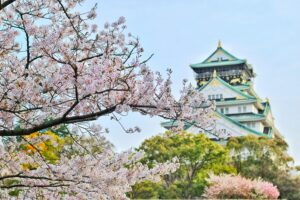Embrace Japan’s remote mountain villages
Japan, renowned for its bustling cities and modern conveniences, also hides a world of serene beauty and cultural richness in its remote mountain villages. For travelers seeking an authentic and off-the-beaten-path experience, these hidden gems offer a glimpse into Japan’s traditional way of life, untouched by urbanization. Navigating these remote areas requires a unique approach, blending curiosity, respect for local customs, and a spirit of adventure. Here’s your guide on how to cope and thrive as a traveler in Japan’s remote mountain villages.
1. Embrace Slow Travel
In Japan’s mountain villages, time seems to move at a different pace—a pace that encourages you to slow down, observe, and immerse yourself in the surroundings. Embrace the concept of slow travel by taking leisurely walks through narrow village streets, savoring local delicacies at small family-run eateries, and engaging in conversations with villagers eager to share their stories. Slow travel allows you to appreciate the simplicity and authenticity of rural life.
2. Respect Cultural Norms
Japan’s remote mountain villages are often steeped in centuries-old traditions and customs. Respect for these cultural norms is essential for a meaningful and respectful travel experience. Before visiting a village, familiarize yourself with basic Japanese etiquette, such as removing shoes before entering homes or temples, using polite language, and adhering to local customs during festivals or ceremonies. Your efforts to understand and respect these traditions will be greatly appreciated by the local community.
3. Stay in Local Accommodations
To fully immerse yourself in the charm of Japan’s mountain villages, opt to stay in traditional guesthouses or minshuku (family-run inns). These accommodations not only offer comfortable lodging but also provide an opportunity to interact closely with local hosts and learn about their way of life. Enjoy home-cooked meals made from locally sourced ingredients and participate in cultural activities such as tea ceremonies or traditional arts and crafts workshops.
4. Explore Nature’s Bounty
Japan’s remote mountain villages are nestled amidst breathtaking natural landscapes, offering ample opportunities for outdoor enthusiasts. Embark on scenic hikes along ancient trails that lead to hidden waterfalls, serene lakes, or panoramic viewpoints of towering mountains. During the spring, witness the spectacle of cherry blossoms in bloom, or visit in autumn to marvel at vibrant hues of red and gold foliage. Nature lovers will find solace and beauty in every corner of these remote villages.
5. Engage with the Community
One of the most enriching aspects of traveling through Japan’s mountain villages is connecting with the local community. Attend village festivals where you can witness traditional performances, join in lively celebrations, and taste regional specialties prepared by local chefs. Engaging with villagers, whether through organized tours or spontaneous encounters, fosters a deeper appreciation for their resilience, hospitality, and commitment to preserving cultural heritage.
6. Prepare for Limited Facilities
While Japan’s remote mountain villages offer unparalleled tranquility and authenticity, it’s essential to be prepared for limited modern amenities. Some villages may have limited internet connectivity, fewer dining options, and fewer English speakers compared to urban areas. Embrace this as part of the adventure, and consider it an opportunity to disconnect from the hustle and bustle of daily life while embracing the simplicity of rural Japan.
7. Learn Basic Japanese Phrases
While many Japanese people in tourist areas speak some English, learning a few basic Japanese phrases can go a long way in enhancing your travel experience, especially in remote mountain villages. Practice common greetings, expressions of gratitude, and simple inquiries about local attractions or recommendations. Your effort to communicate in Japanese will be warmly received by locals, fostering positive interactions and mutual respect.
8. Be Mindful of Sustainable Travel Practices
Responsible travel is crucial in preserving the natural beauty and cultural integrity of Japan’s remote mountain villages. Support local businesses by purchasing handmade crafts or locally grown produce, minimize waste by carrying reusable items, and follow designated hiking trails to protect fragile ecosystems. By practicing sustainable travel habits, you contribute to the long-term sustainability of these communities and their environments.
Traveling through Japan’s remote mountain villages offers a transformative journey filled with cultural discoveries, natural wonders, and heartfelt connections with local communities. Embrace the opportunity to step off the beaten path, immerse yourself in traditional Japanese hospitality, and witness the timeless beauty of rural life. Whether you’re seeking serenity in nature, cultural immersion, or simply a break from the ordinary, Japan’s remote mountain villages promise an unforgettable travel experience.
